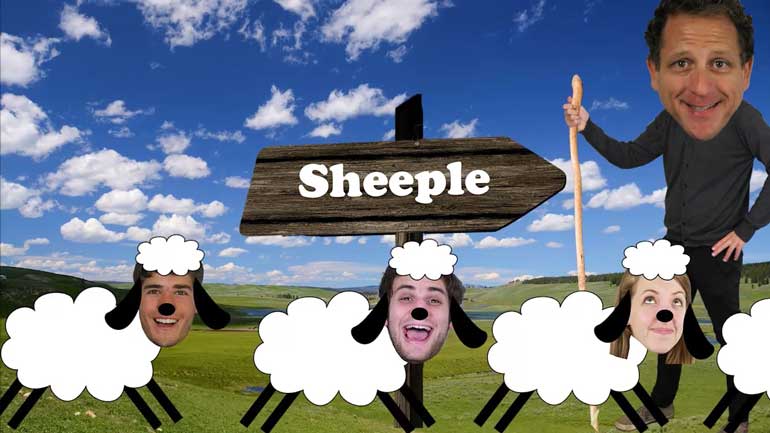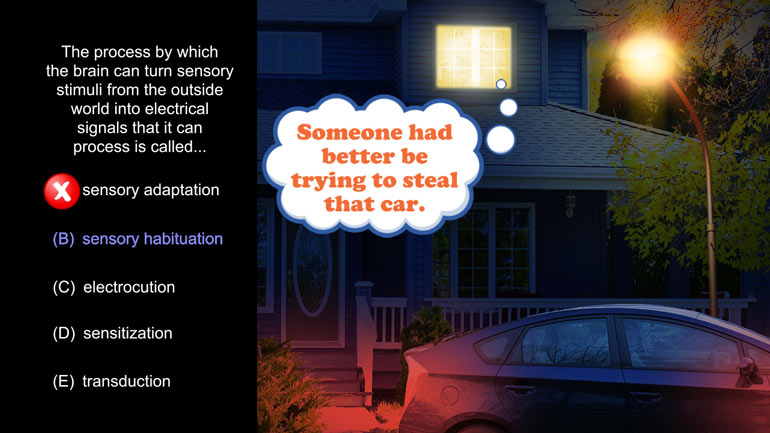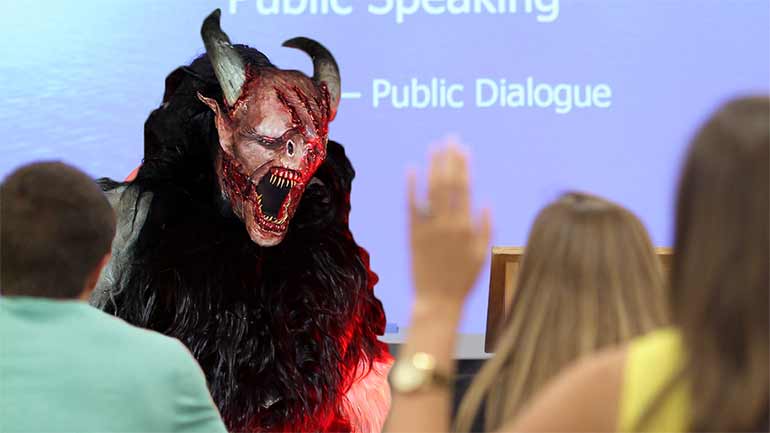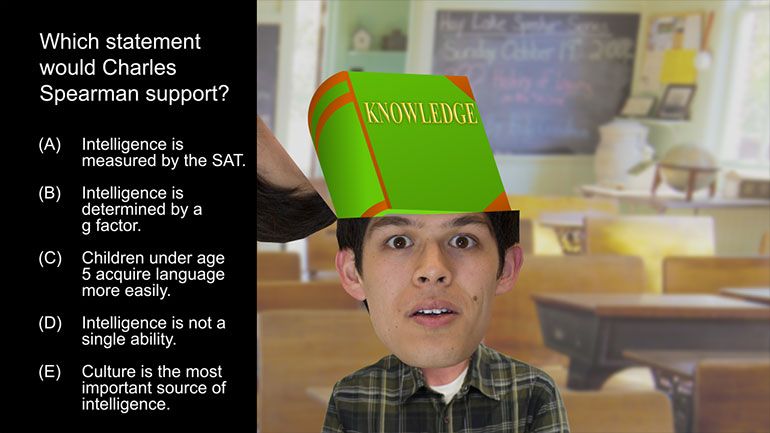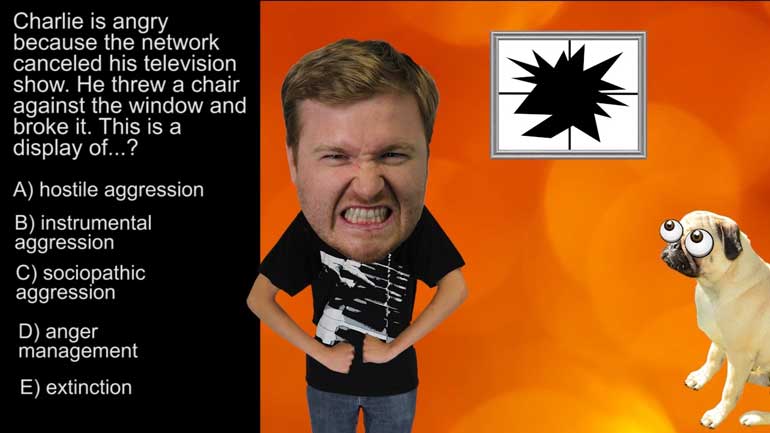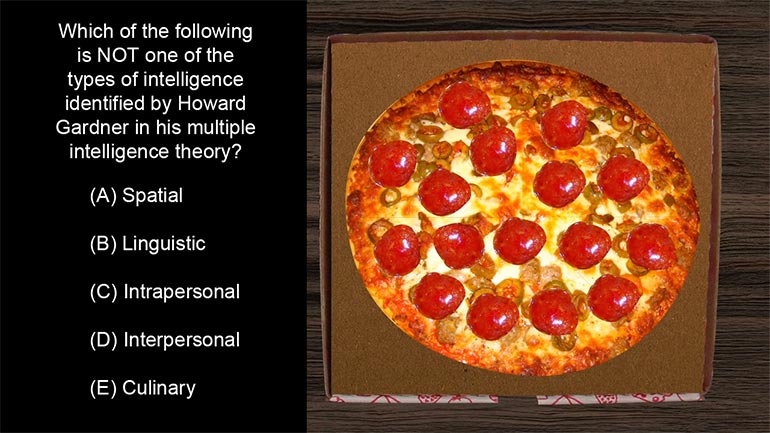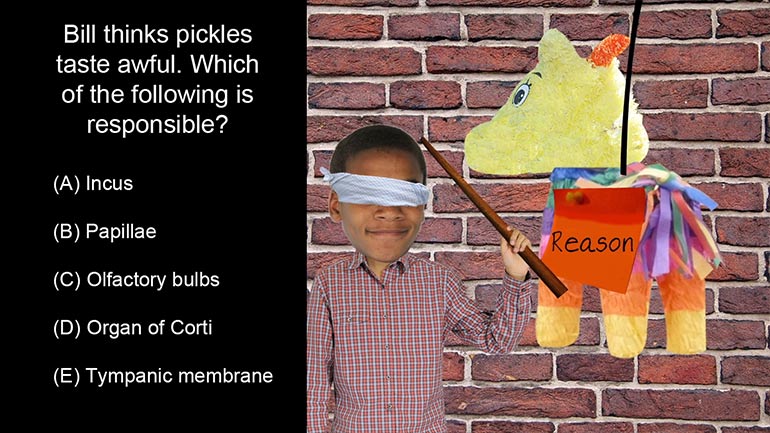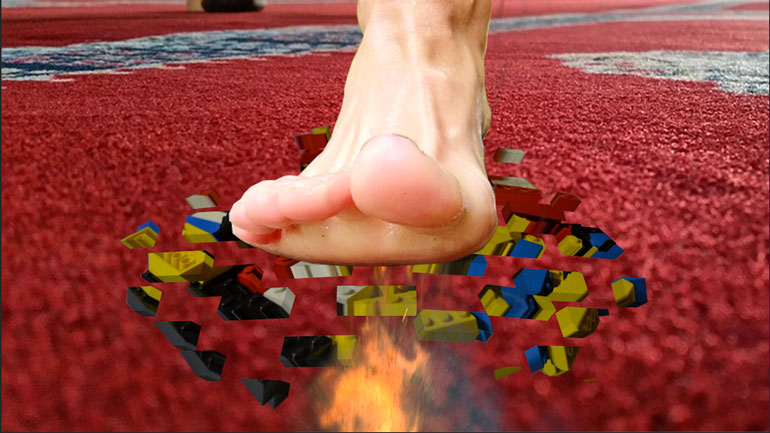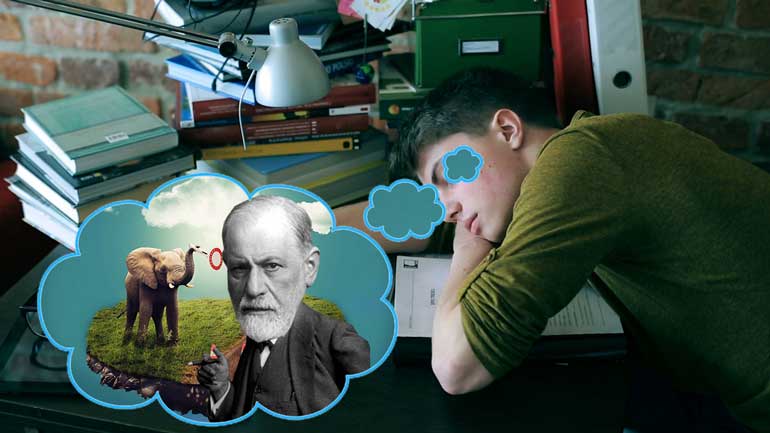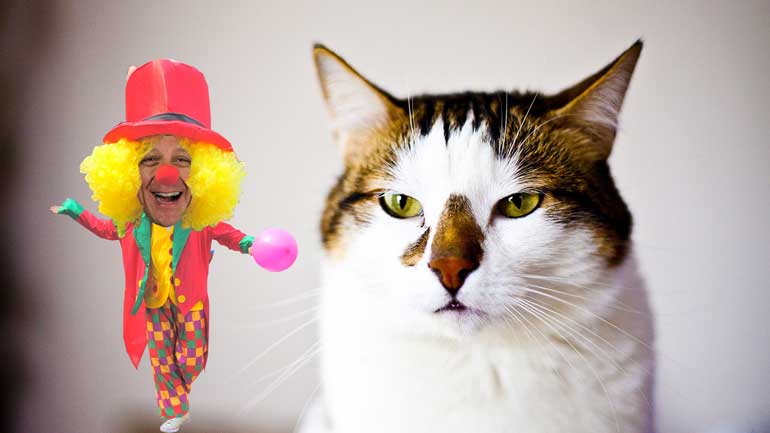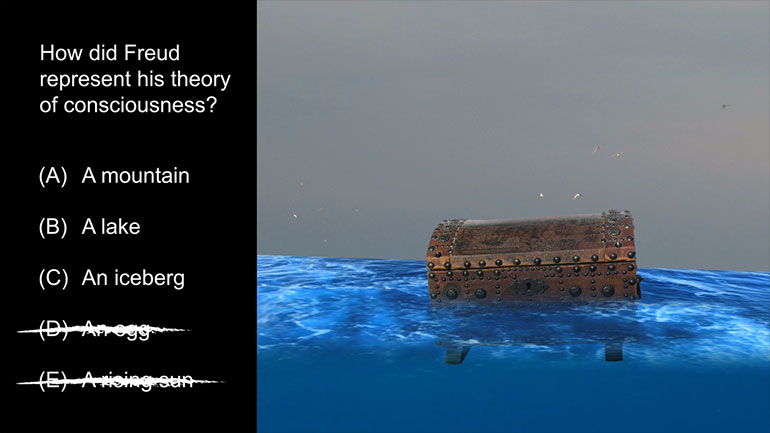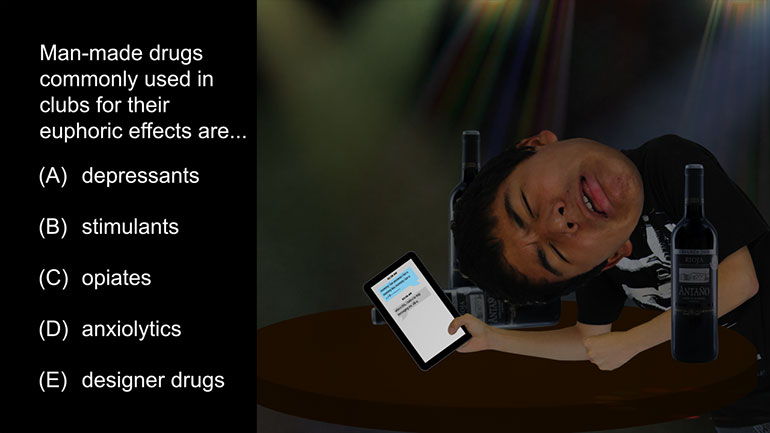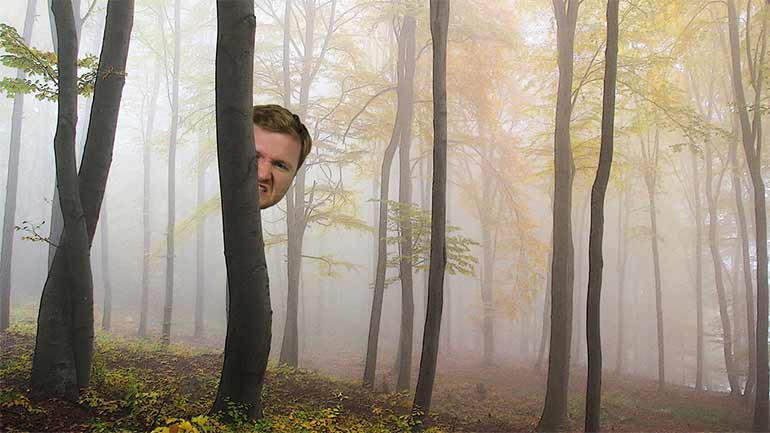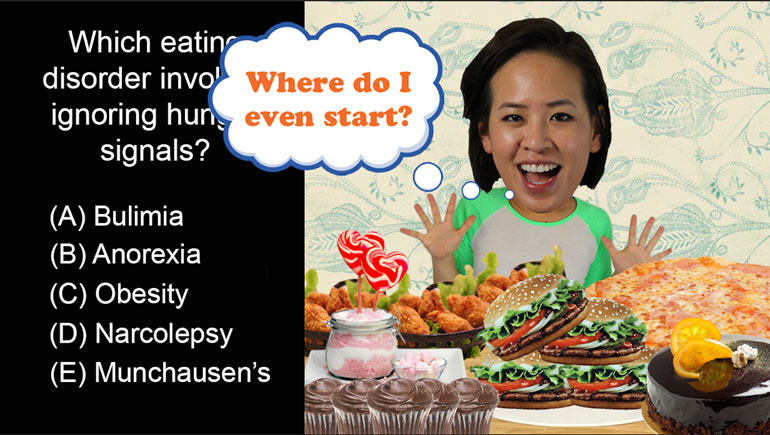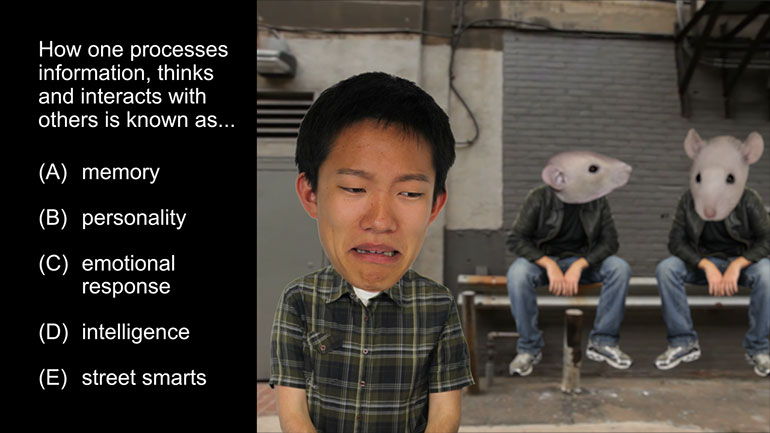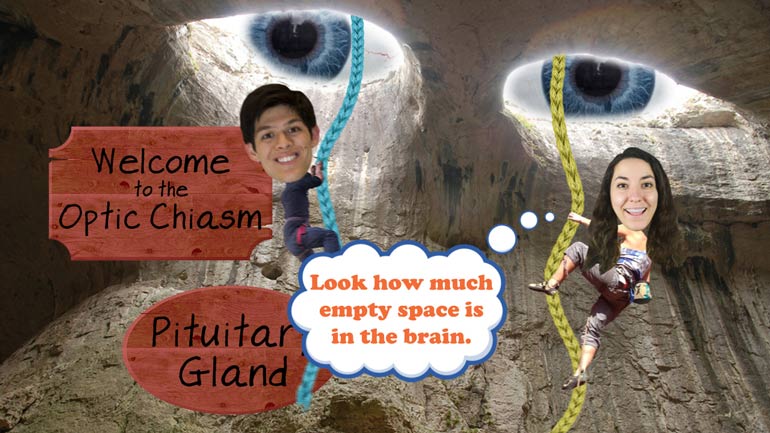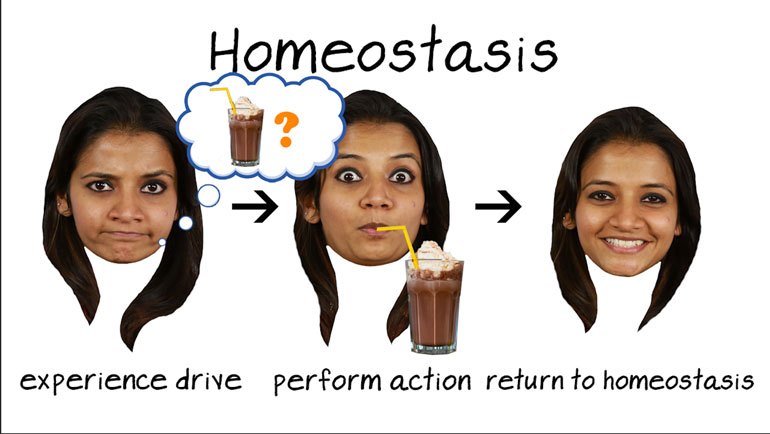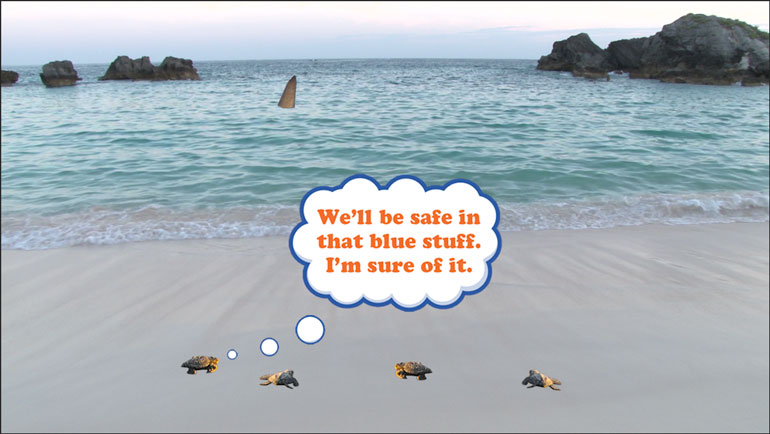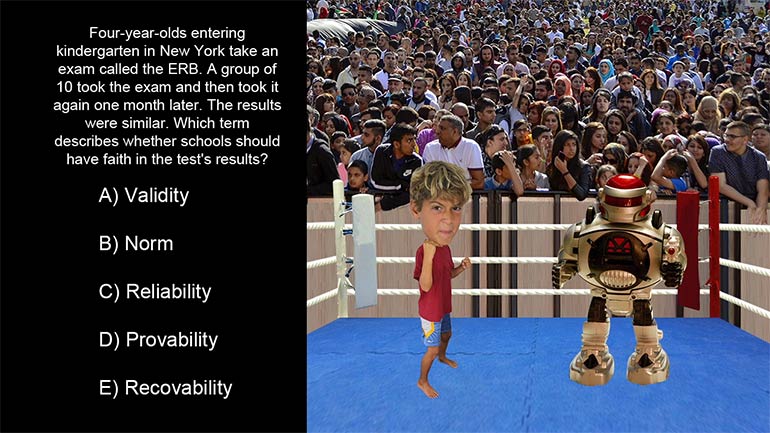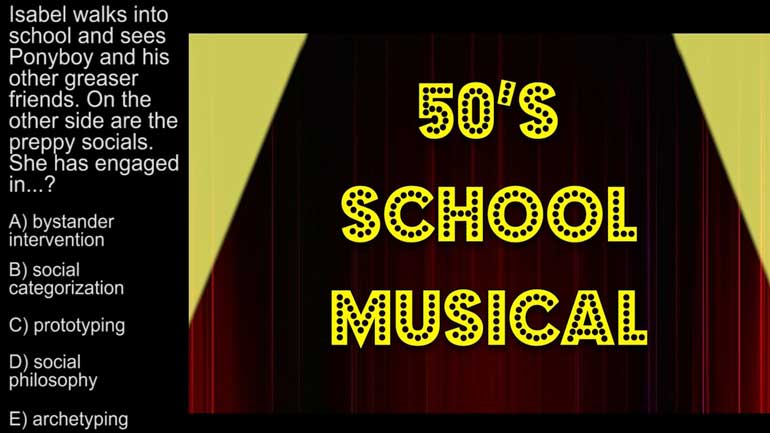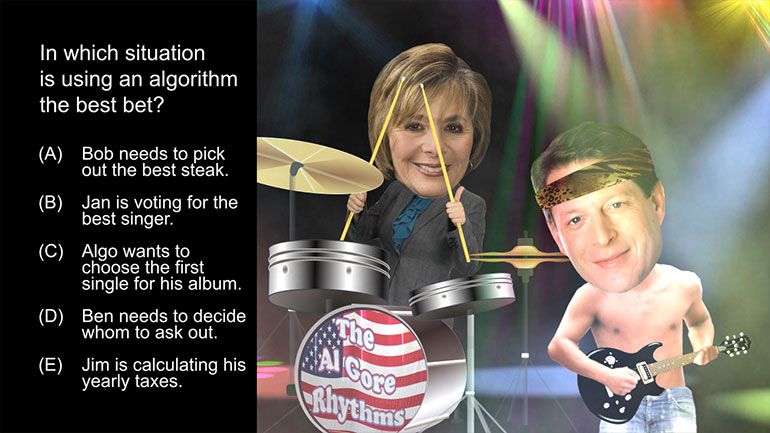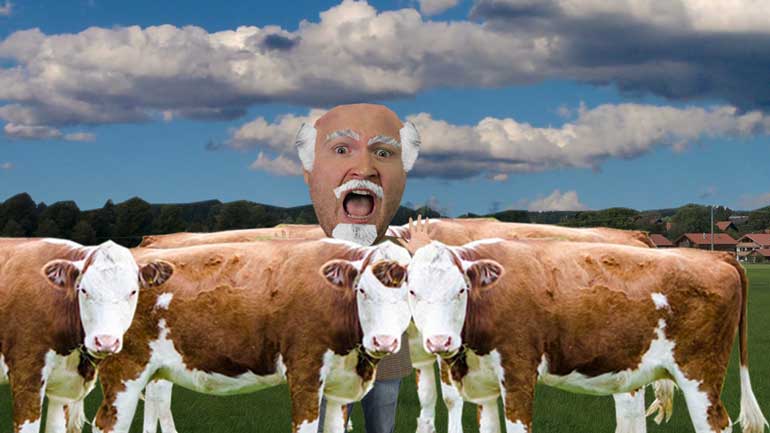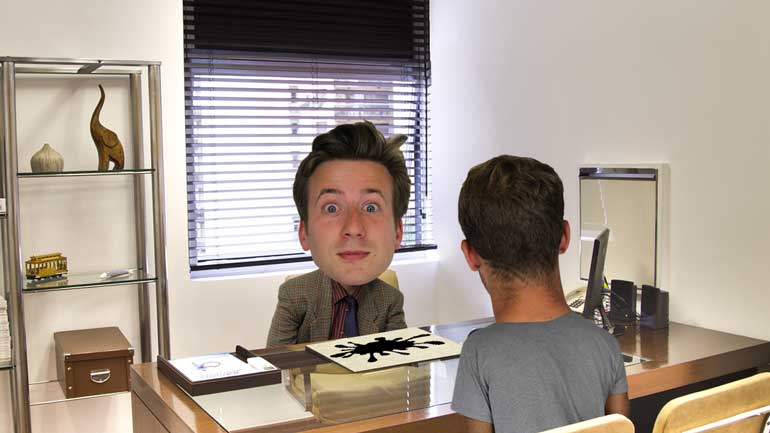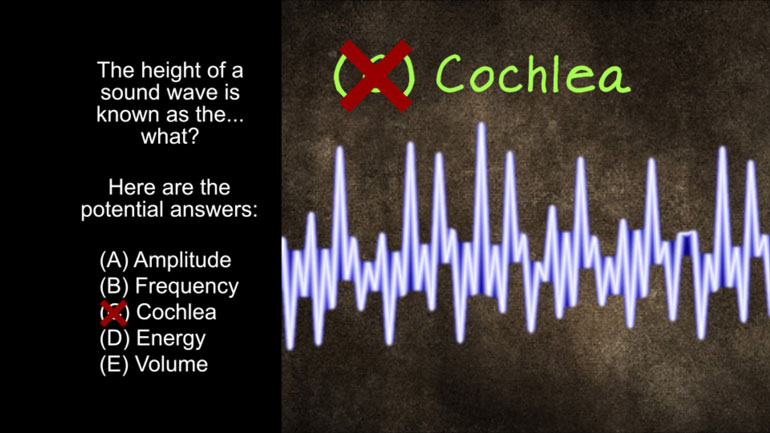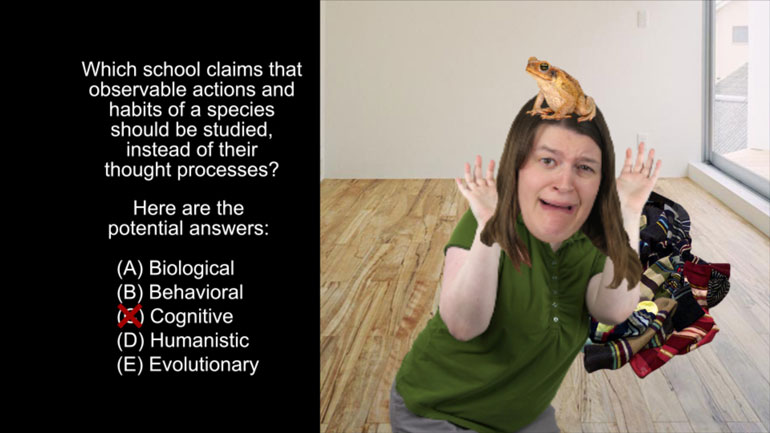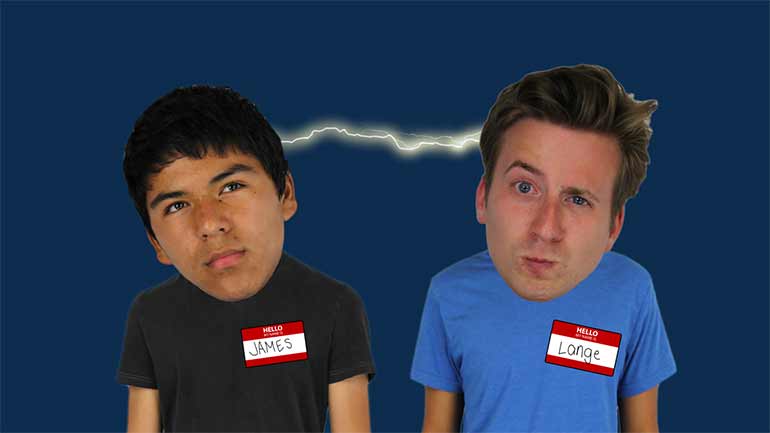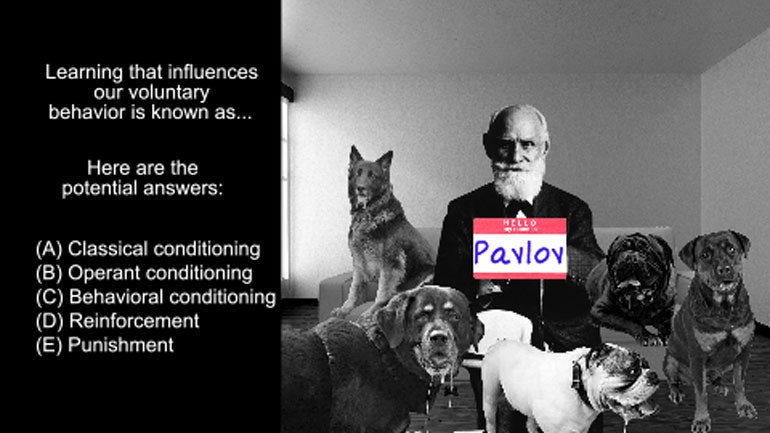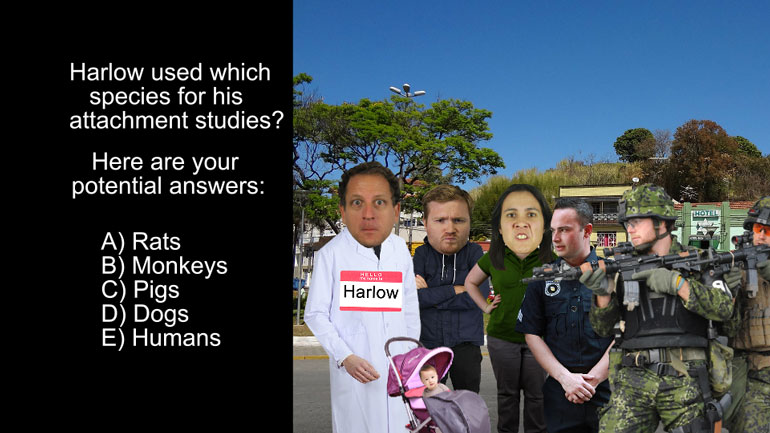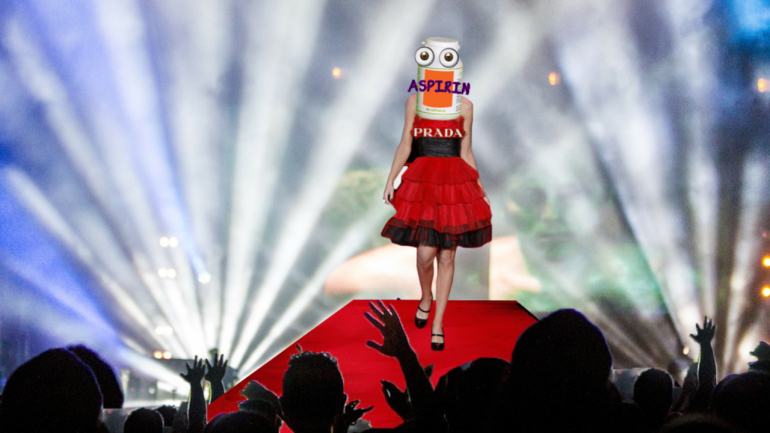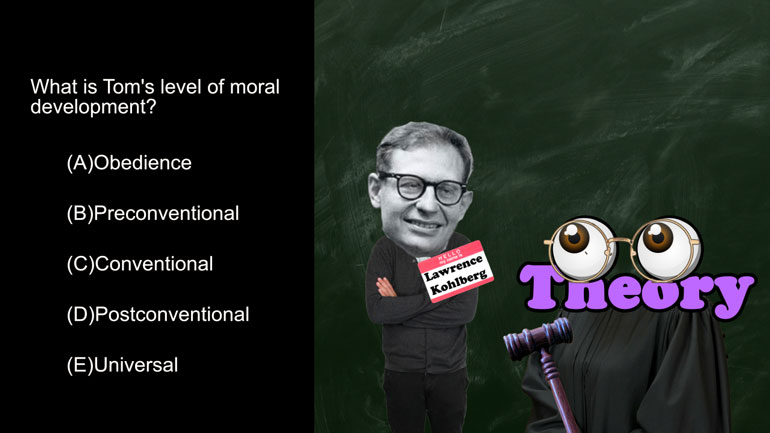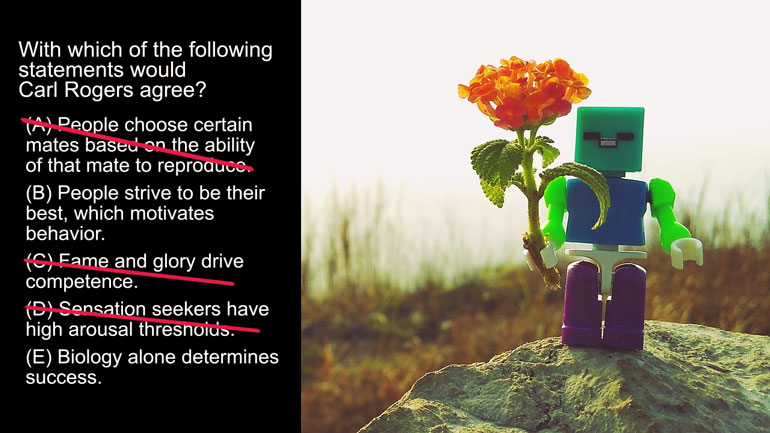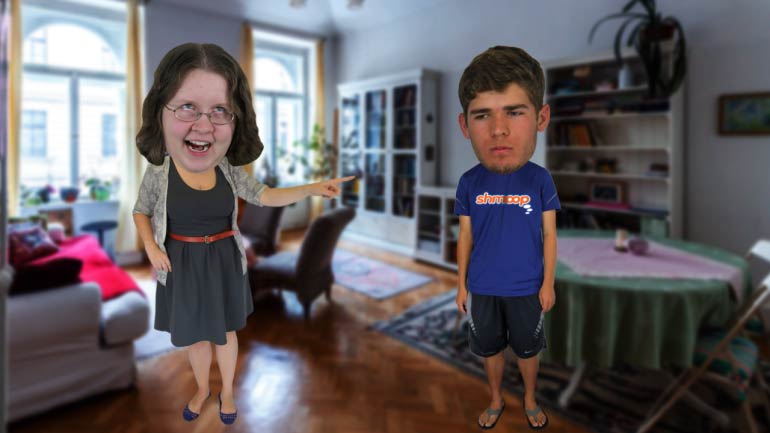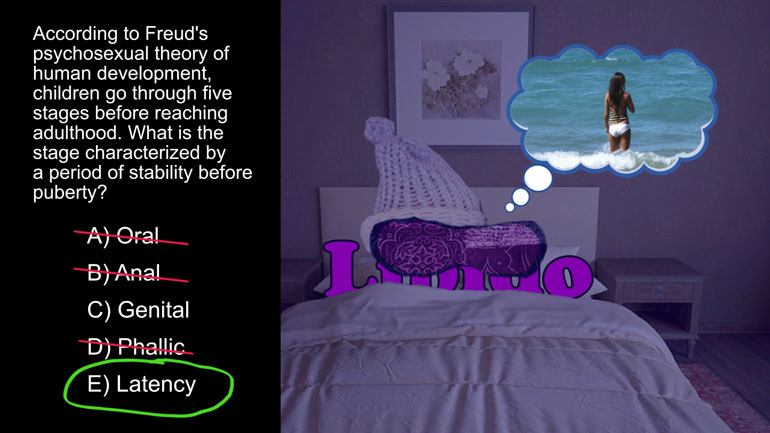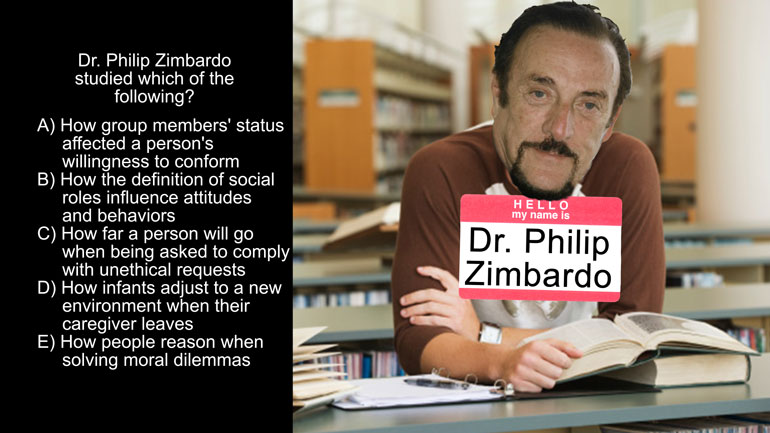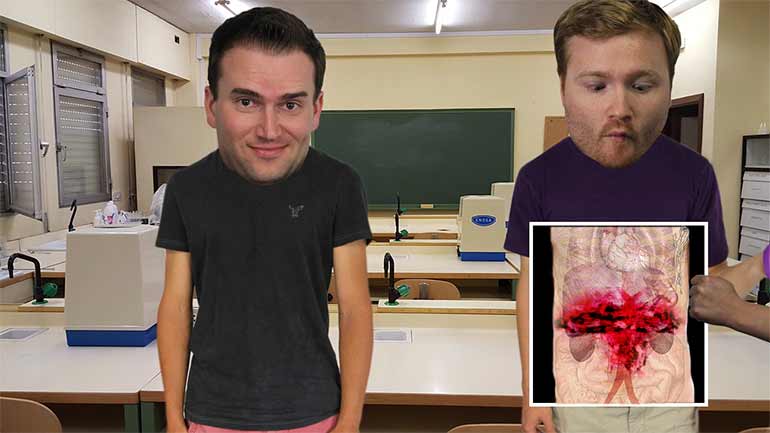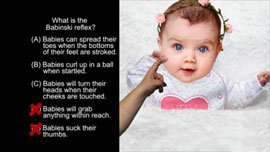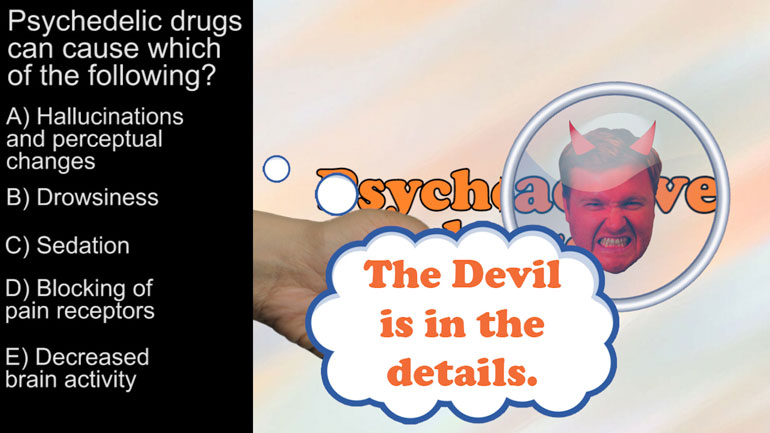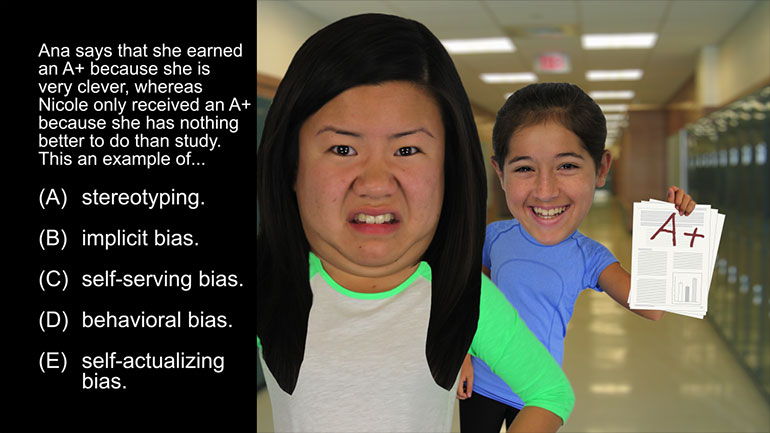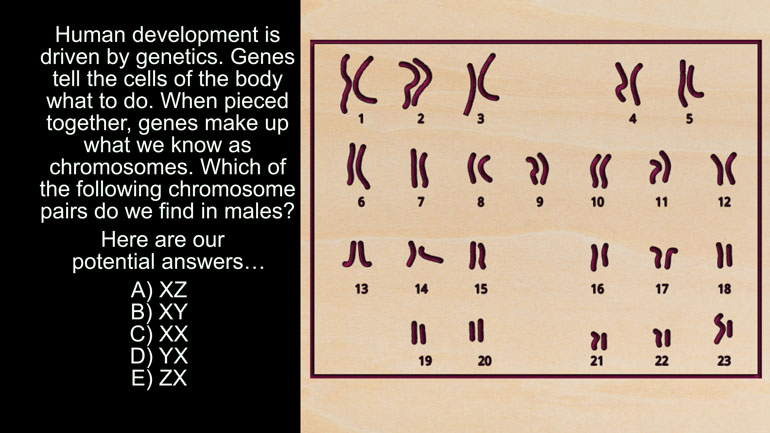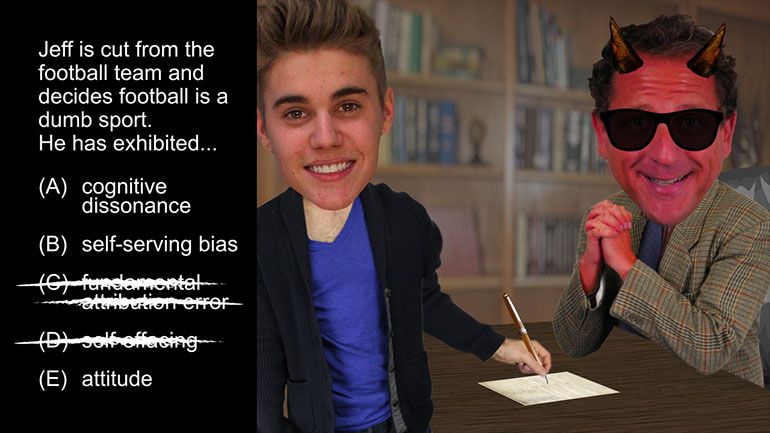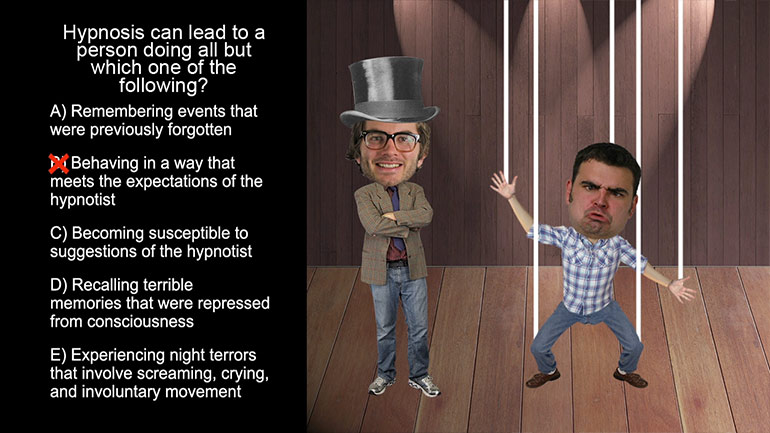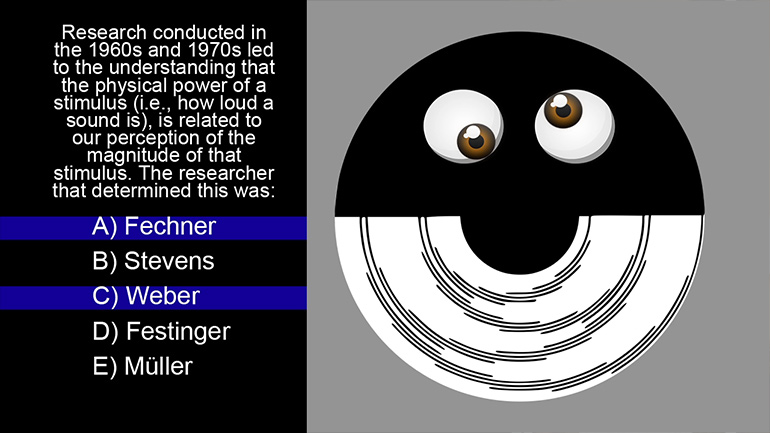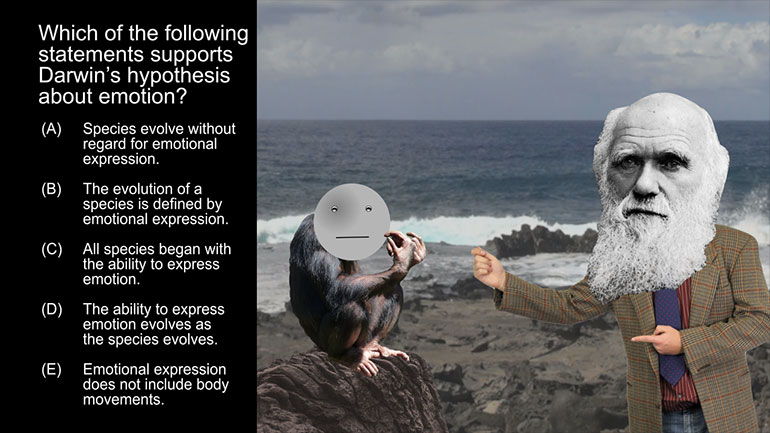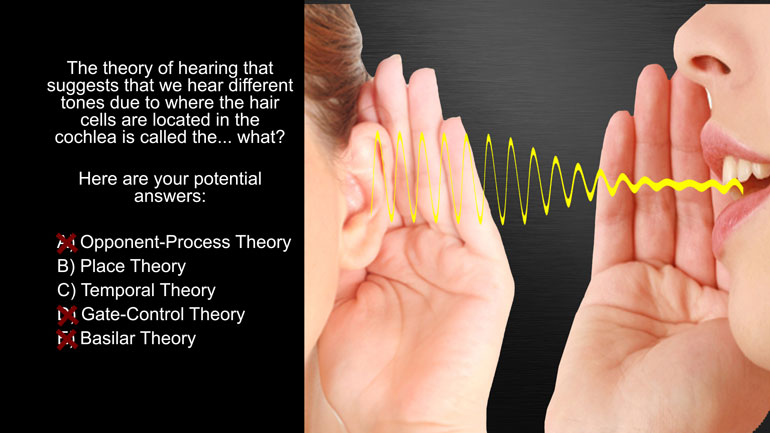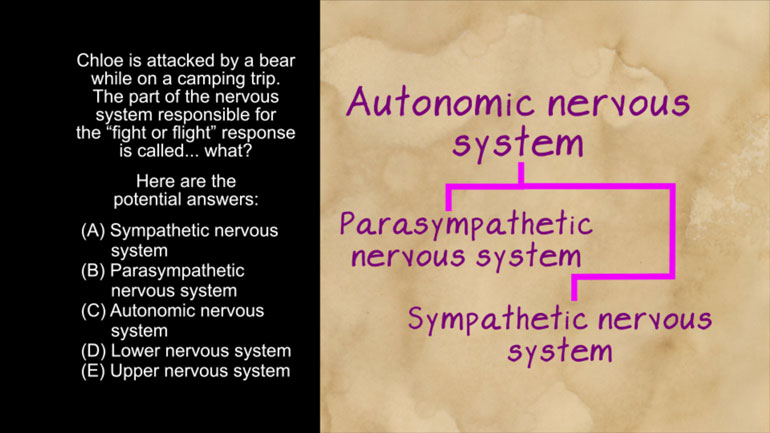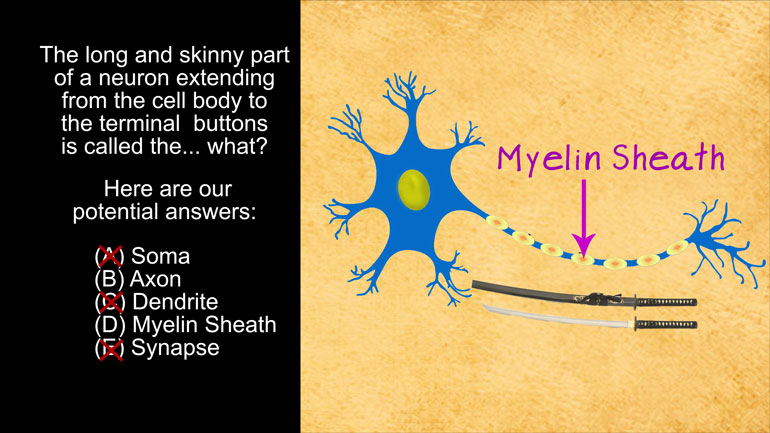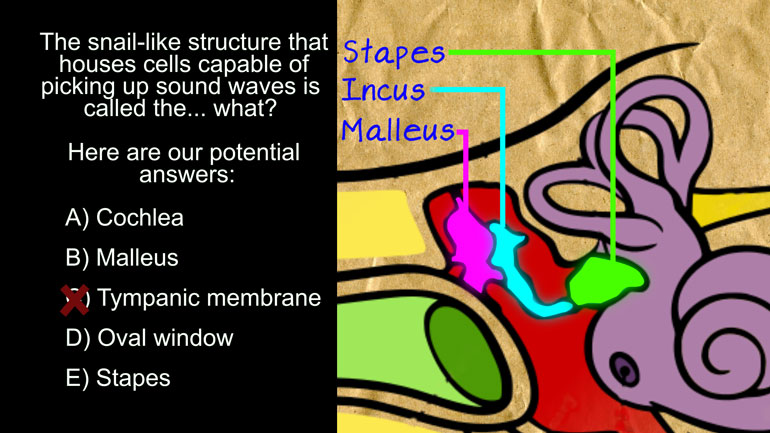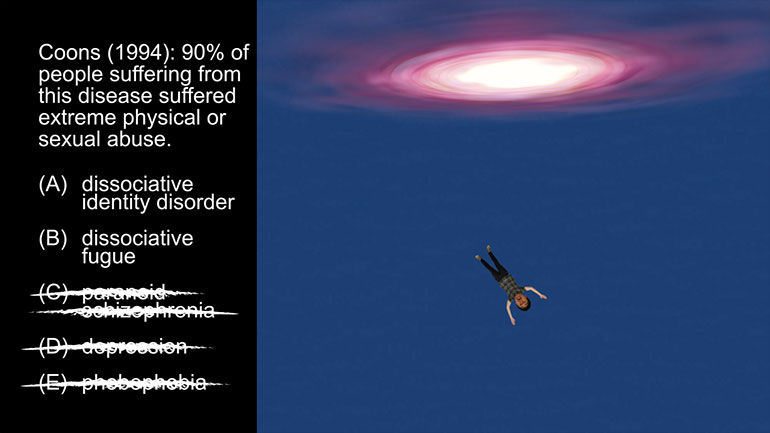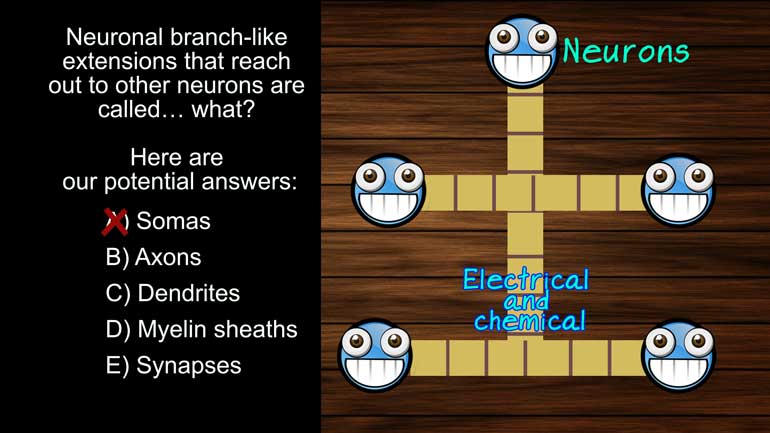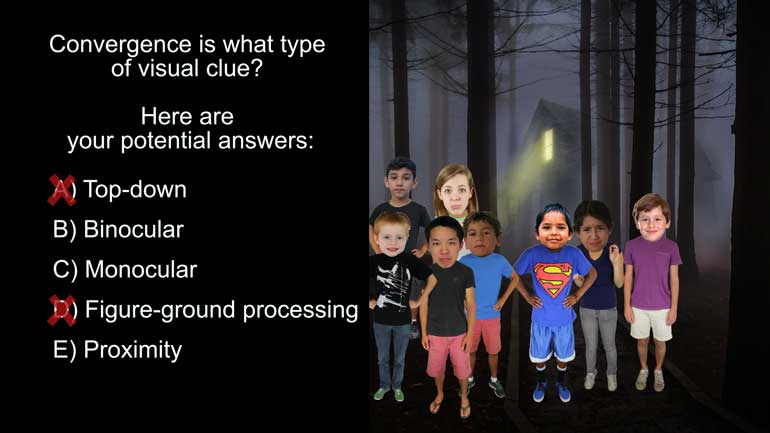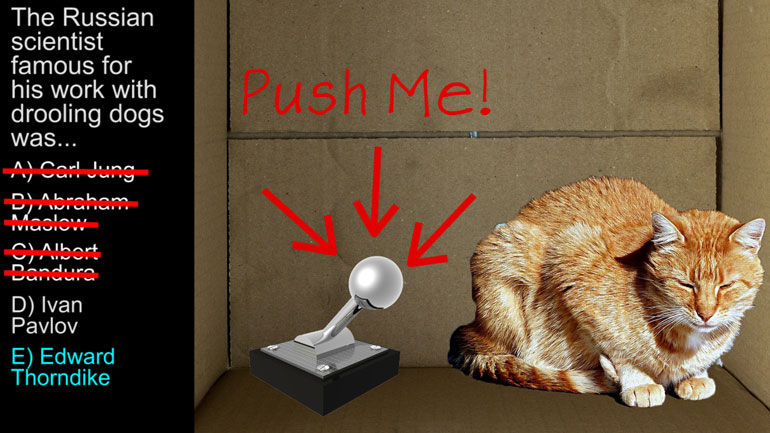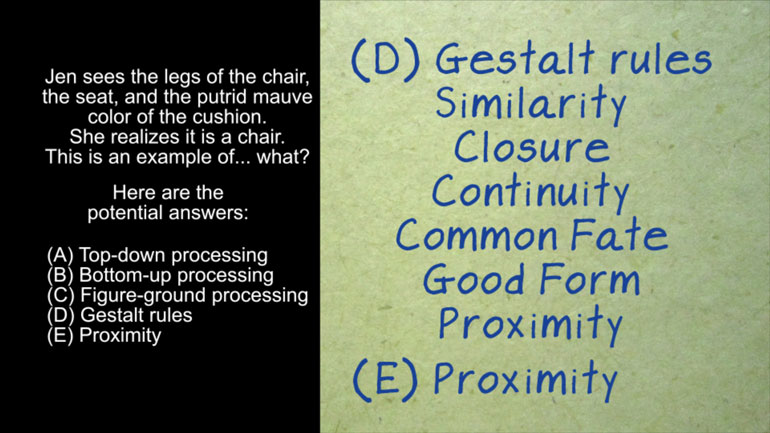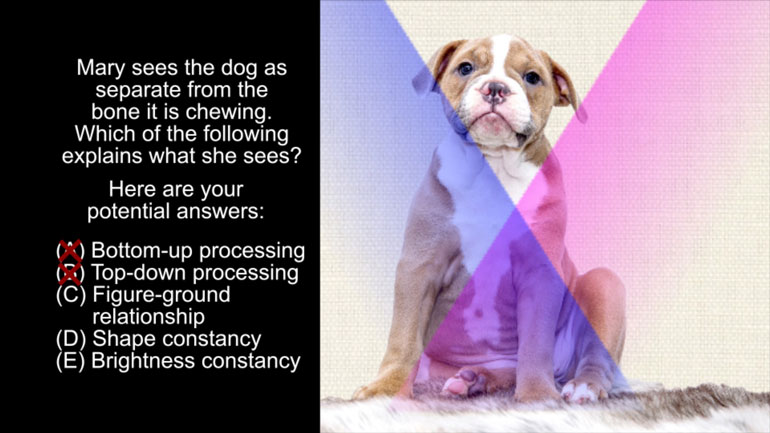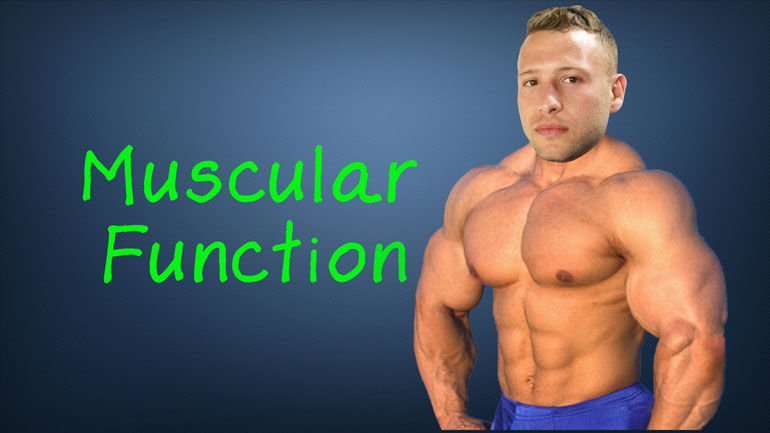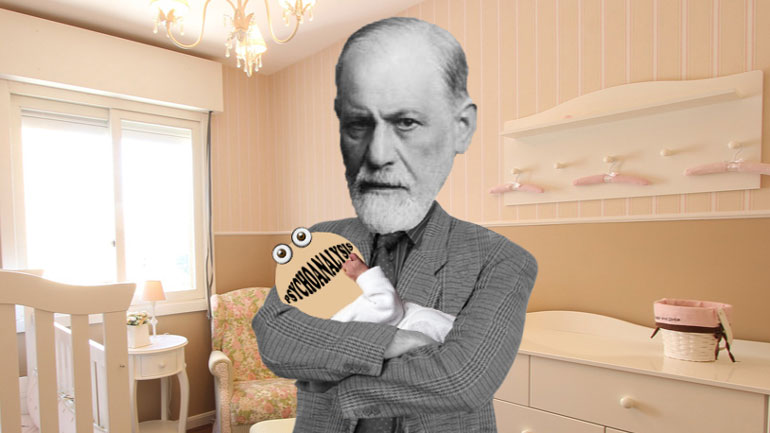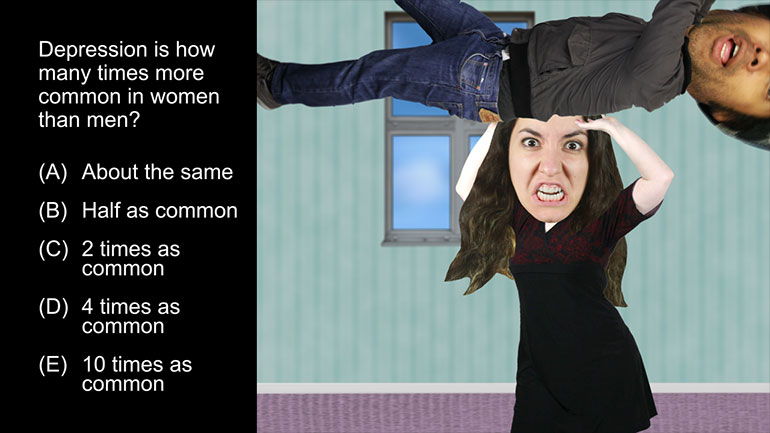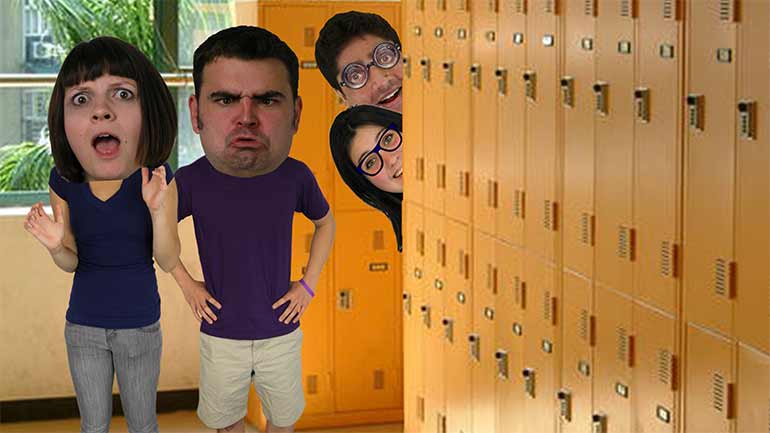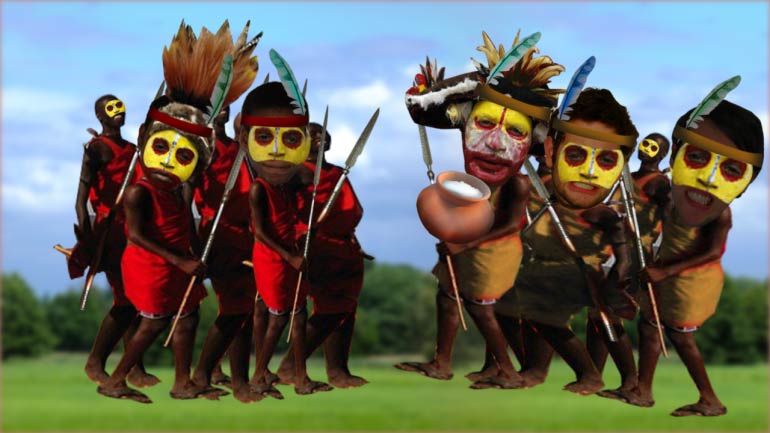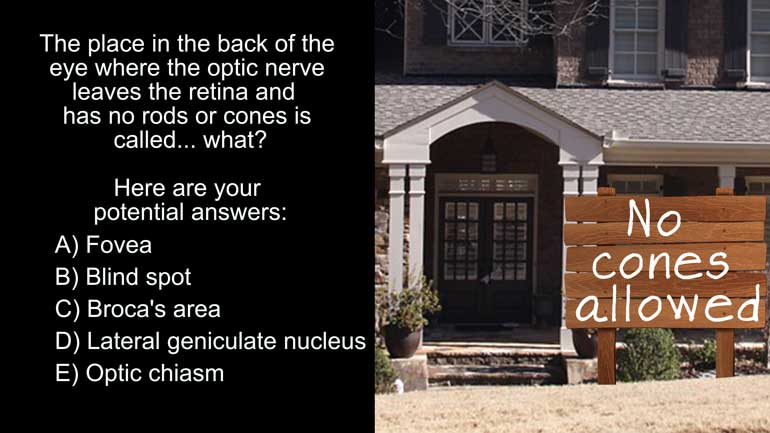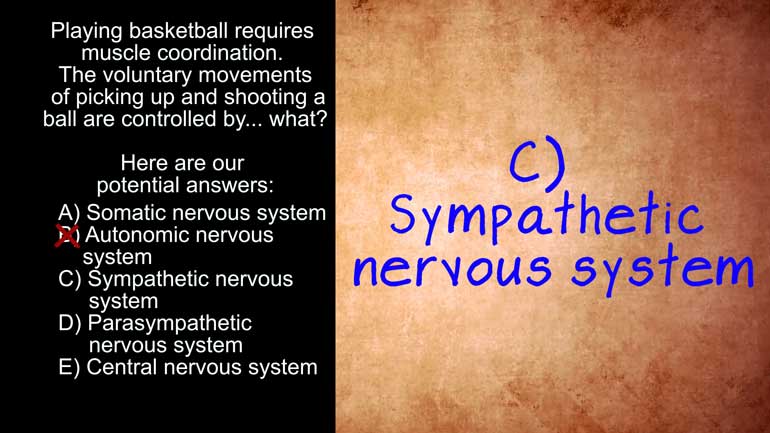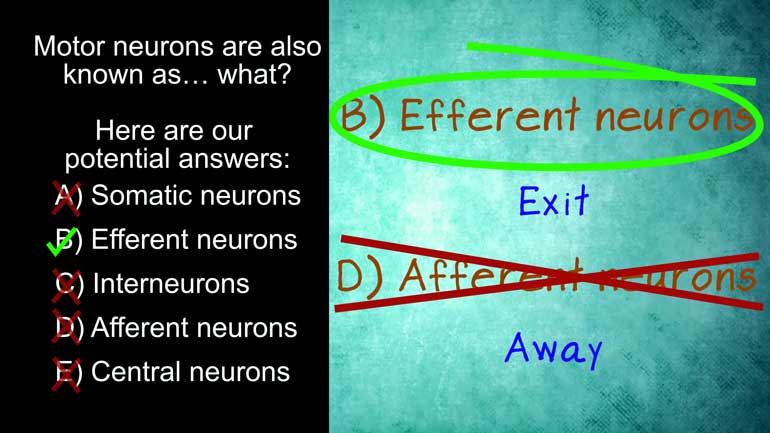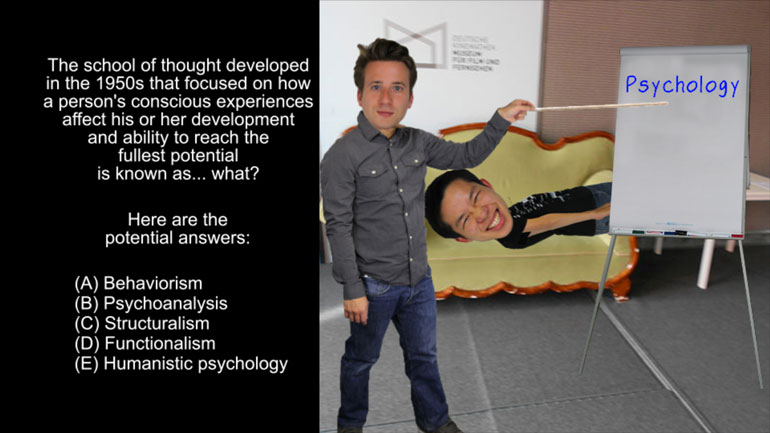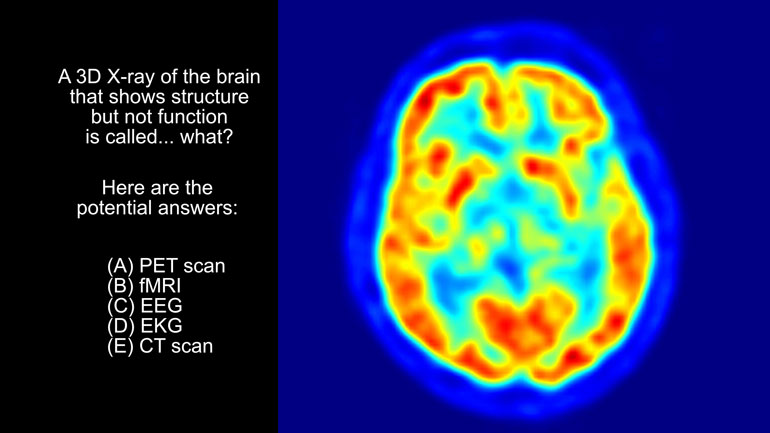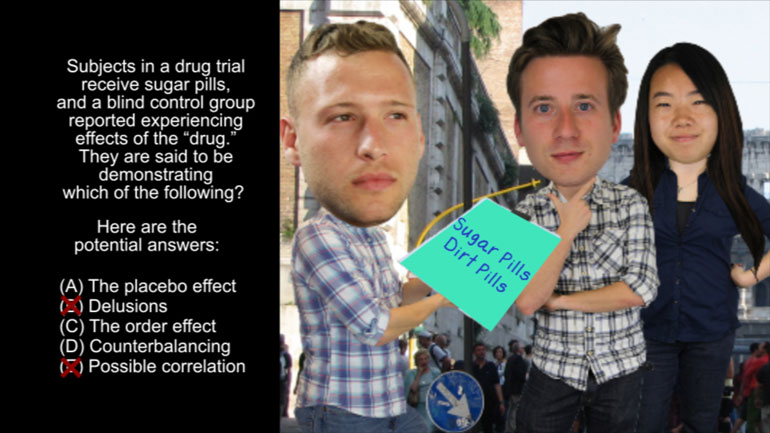ShmoopTube
Where Monty Python meets your 10th grade teacher.
Search Thousands of Shmoop Videos
AP Psychology Videos 163 videos
AP Psychology 2.2 Social Psychology. Which of the following was an independent variable manipulated in Asch's research?
AP Psychology 1.1 Personality. According to Freud, these three parts of personality are constantly in conflict.
AP Psychology 1.1 Sensation and Perception. The process by which the brain can turn sensory stimuli from the outside world into electrical signals...
AP Psychology 2.4 States of Consciousness 4 Views
Share It!
Description:
AP Psychology 2.4 States of Consciousness. Hypnosis can lead to a person doing all but which of the following?
Transcript
- 00:00
here's your shmoop du jour brought to you by hypnosis .you are
- 00:08
getting very very sleepy. repeat after shmoop. I love shmoop. shmoop for president.
- 00:15
shmoop for world president. and now we wait. here's our question .hypnosis can [clock sways as black and white circles move]
- 00:22
lead to a person doing all that which of the following: and here are potential
- 00:25
answers. after that hypnosis thing. Alright. well
Full Transcript
- 00:30
please note our carefully worded question. can lead to a person doing that
- 00:35
is to say we're not willing to flat-out stick that hypnotism works and puts the
- 00:39
hypnotized person to complete control of the hypnotist. we aren't puppets after
- 00:44
all. the act of putting an individual into hypnosis is said to put them into a
- 00:48
state of heightened focus, allowing them to concentrate on the task at hand while
- 00:52
also leaving them far more susceptible to suggestion. so when we worded b for
- 00:57
instance which by the way isn't the correct answer because it definitely [option B on the blackboard]
- 01:00
does happen to people being hypnotized. we're leaving it up to you to decide if
- 01:03
the power of hypnotism is controlling the individual or if they're merely
- 01:07
feeling a social pressure to conform to the situation and thereby acting in the
- 01:11
way they think the Hypnotizer wants and to act, which is why the rather similar
- 01:15
answer see also is not correct. remember we're looking for something that doesn't
- 01:19
happen to individuals under hypnosis and it's most definitely common for
- 01:22
individuals to be more open to suggestion during hypnosis whether it's
- 01:26
to bark like a dog jump on one foot, do a cartwheel or somehow all three at once.
- 01:32
that being said it's still up to debate as to whether the person was actually
- 01:35
barking and jumping around because they couldn't control themselves or if they
- 01:39
were doing it because they were in front of a crowd and it would be pretty
- 01:42
awkward if they didn't listen to anything the hypnotist said at all. an
- 01:46
individuals involved in hypnotism do often recall events from the past
- 01:49
they've had and since forgotten. even if they're not all that Pleasant .heightened
- 01:54
senses of focus & relaxation are commonly associated with hypnotism .both [man frowns as he lays on a couch]
- 01:59
of which can aid in recalling old memories.
- 02:01
and we're looking for something unrelated to hypnotism you have to go as
- 02:05
well. while much of hypnotism is still up for debate one thing is for certain. it
- 02:09
definitely hasn't been known to cause night terrors. not yet anyway. now back to
- 02:14
the whole shmoop for president thing- you're getting sleepy very sleepy. yeah
- 02:19
how long does this take? [clock swaying]
Related Videos
AP Psychology 2.2 Social Psychology. Which of the following was an independent variable manipulated in Asch's research?
AP Psychology 1.1 Personality. According to Freud, these three parts of personality are constantly in conflict.
AP Psychology 1.1 Sensation and Perception. The process by which the brain can turn sensory stimuli from the outside world into electrical signals...
AP Psychology 1.1 Social Psychology. Which of the following best describes social psychology?
AP Psychology 1.1 States of Consciousness. Who conducted research on REM sleep deprivations?
